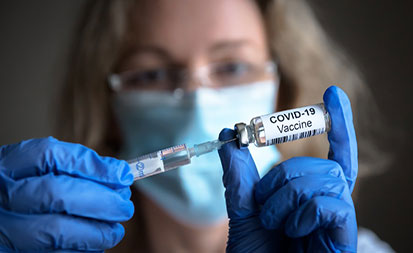Experimental Drug can Speed up the Recovery from COVID-19, says New Study Published in the journal Lancet Respiratory Medicine
Scientists have found that an experimental antiviral drug can significantly speed up recovery in Covid-19 patients who do not need hospitalisation, an advance that may lead to better interventions to treat those infected with the

Scientists have found that an experimental antiviral drug can significantly speed up recovery in Covid-19 patients who do not need hospitalisation, an advance that may lead to better interventions to treat those infected with the novel coronavirus. The study, published in the journal Lancet Respiratory Medicine, noted that patients who received a single injection of the drug peginterferon-lambda were over four times more likely to have cleared the infection within seven days compared to a group treated with placebo.
“This treatment has large therapeutic potential, especially at this moment as we see aggressive variants of the virus spreading around the globe which are less sensitive to both vaccines and treatment with antibodies,” said study co-author Jordan Feld from the Toronto Centre for Liver Disease in Canada.
According to the researchers, people who were treated with the drug cleared the virus quickly with the effect being most pronounced in those with the highest viral levels.
“We also saw a trend towards quicker improvement of respiratory symptoms in the treatment group,” Feld explained.
Patients with higher viral levels were much more likely to clear the infection following treatment with the drug than those who received the placebo — 79 percent in the treatment arm compared to 38 percent in the placebo group.
The researchers added that the virus levels decreased quickly in everyone in the treatment group.
They explained that rapid clearance of the virus has several benefits, particularly in those with high viral levels, as such cases are associated with more severe disease and a higher risk of transmission to others.
Among the 60 patients followed in the study, the researchers said five went to emergency rooms with deteriorating respiratory symptoms.
And of those five, they said four were in the placebo group, while only one was in the group which received the actual drug.
“If we can decrease the virus level quickly, people are less likely to spread the infection to others, and we may even be able to shorten the time required for self-isolation,” Feld said.
The scientists said interferon-lambda is a protein produced by the body in response to viral infections with the ability to activate a number of cellular pathways to kill invading viruses.
Since the novel coronavirus prevents the body from producing interferons as a means to avoid being controlled by the body’s immune system, the study said treatment with the drug activates those same virus-killing pathways in the cells.
According to the researchers, the drug peginterferon-lambda is a long-acting version of the drug developed by Eiger BioPharmaceuticals, adding that it can be given as a single injection under the skin with a tiny needle.
They hope to conduct a phase 3 trial in the near future to find the efficacy of the drug in a much larger population.






